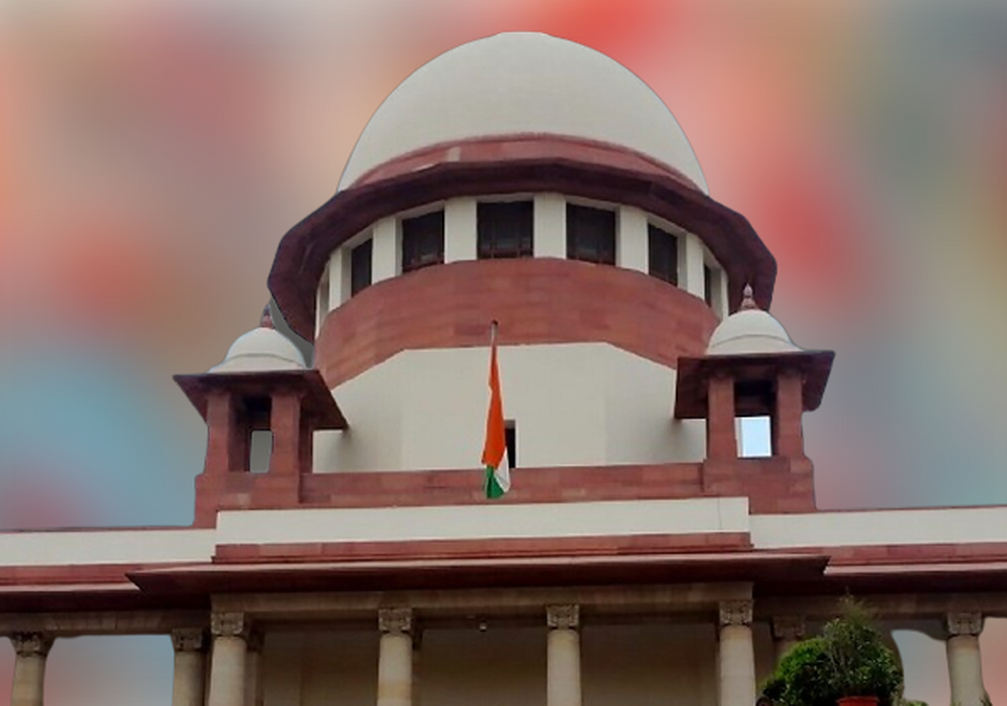In W.P.(C)6822/2011-DEL HC- If misconduct relates to demand of bribe, punishment of dismissal is not disproportionate to guilt of charged official: Delhi HC rejects plea of dismissed Delhi Police Constable Justices Chandra Sharma & Subramonium Prasad [05-08-2022]

Read Order: RAM KISHAN v. GOVT. OF NCT OF DELHI AND ORS
LE Correspondent
New Delhi, August 11, 2022: Restating the settled position of law that the scope of judicial interference, in case of a Departmental Enquiry, is quite limited, the Delhi High Court has held that the misconduct of demand regarding the illegal gratification is a very serious misconduct.
The Division bench of Justice Chandra Sharma and Justice Subramonium Prasad dismissed the present petition that stemmed from the judgment of the Central Administrative Tribunal. The Bench was of the considered view that in the present case of misconduct of demand regarding the illegal gratification, the question of interference in respect of the order of dismissal did not arise.
The factual matrix of the case was such that the petitioner before this Court who was serving on the Post of Constable in the Delhi Police establishment allegedly on April 30, 2006 while posted at PS Parliamentary Street, stopped a vehicle and demanded bribes from the vehicle owner. However, at the same time Inspector Satya Pal Singh, SHO Tilak Marg, reached the spot and the Petitioner immediately permitted the driver of the Maruti Van to leave the place and he also fled away from the spot on his Government Motorcycle.
The driver eventually lodged a report in the matter with the Police and in pursuance of the same Parliamentary enquiry took place. In the preliminary enquiry, the Enquiry Officer found the Petitioner guilty and took a decision on to hold a regular Departmental Enquiry keeping in view Delhi Police (Punishment & Appeal) Rules, 1980. Subsequently, the charge sheet was issued to the petitioner.
Thereafter, the Disciplinary Authority inflicted punishment of dismissal from service, against which, an Appeal was preferred and the Appellant Authority affirmed the order of punishment. The petitioner, being aggrieved by the order passed by the Disciplinary Authority and the Appellant Authority, had approached the CAT by filing an Original Application, and the CAT had dismissed the Original Application.
The Court noted that it is a well settled position of law that the High Court cannot re-appreciate the evidence, and interference can be done only if there is a procedural irregularity or that principles of natural justice and fair-play have been violated.
The present case is not a case where the Department has not followed the prescribed procedure, nor the present case is a case where principles of natural justice and fair-play have been violated, the Court further noted. The Bench observed that the misconduct of demand regarding the illegal gratification was a very serious misconduct, and the same was proved based upon the statement made by the witnesses before the Enquiry Officer.
In the considered opinion of this Court, the question of interference in the peculiar facts and circumstances of the case did not arise, the Court stated. Additionally, the Court noted that the scope of judicial enquiry, in case of Departmental Enquiry is quite limited. At this stage reliance was placed on the judgments in Apparel Export Promotion Council V. A. K. Chopra, State of A. P. V. S. Sree Rama Rao, Union of India V. P. Gunasekaran, and State of Karnataka V. N. Gangaraj.
Thus, in light of the observations stated above, the Court noted that the question of interference in respect of the order of dismissal which is based upon a Departmental Enquiry, did not arise. Asserting that there were no procedural irregularities in the matter, the Bench said, “…the charge of demanding bribe/ illegal gratification itself is a very serious charge. He demanded bribe from the owner of the vehicle and the same fact has been established in the Departmental Enquiry.”
Hence, the Court opined that it found no reason to intervene with the Order passed by the Central Administrative Tribunal, and the Writ Petition was accordingly, dismissed.
Sign up for our weekly newsletter to stay up to date on our product, events featured blog, special offer and all of the exciting things that take place here at Legitquest.




Add a Comment